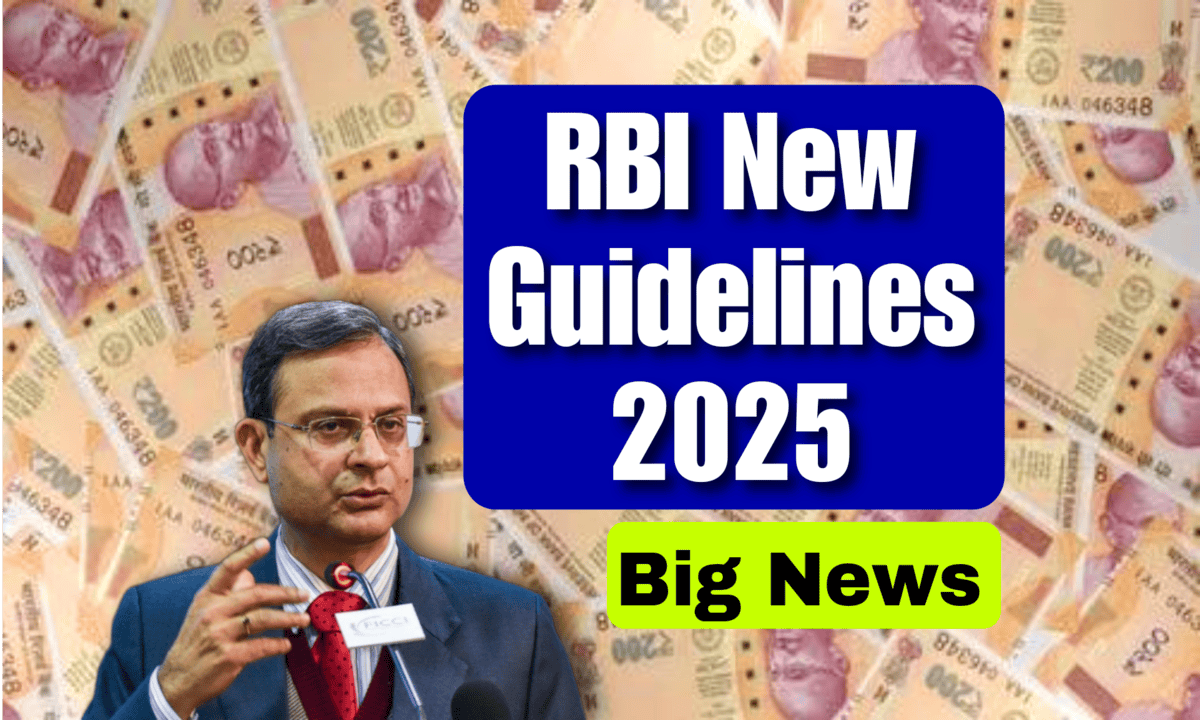RBI New Rules 2025 : In one of the most assertive ways to strengthen the financial ecosystem, the Reserve Bank of India (RBI) introduced various new regulations in 2025. Since these amendments will be felt directly in daily banking, digital payments, loans, and customer rights, it becomes an imperative for an Indian citizen to keep himself updated about them. Be it a salaried employee, small business owner, investor, or senior citizen, money management and safeguarding are indeed addressed in these new regulations. Let us now go through some of the crucial changes in RBI policies that will potentially rewrite banking for millions across the country.
Stricter KYC Norms To Curb Fraud
The RBI has now placed desire to raise the KYC standards since there have been increasing incidents of identity theft and criminal fraud. Henceforth, the banks have been asked to renew KYC records of the customers after every three years for high-risk accounts and after every 10 years for low-risk profiles. Digital re-KYC will be promoted wherein the customers can submit their documents through authorized mobile applications and internet banking. Aadhaar-based identification will form the basis of verification; however, for transactions of large value, further safeguard measures providing facial recognition and OTP-based approval will become mandatory.
Daily UPI Limits Revised For Enhanced Security
Much awaited, the UPI transaction limits have stated to be modified by the RBI. For every day regular transactions, the maximum amount stands at ₹1 lakh. But in case payments have to be made through UPI for investments like mutual funds, insurance, or credit cards, the ceiling has now been enhanced to ₹2 lakh per day, giving users a better option. Fraudulent transactions are immediately stopped through real-time fraud monitoring implemented on all payment apps and banks. Any suspicious activities are immediately alerted to the user, who is then able to stop further actions through a panic button that temporarily freezes the account.
The Loan And EMI Transparency Rules Have Been Introduced
Borrowers can heave a sigh of relief now. The RBI has made it necessary for every bank and NBFC to disclose the entire breakup of the EMIs, including the interest rate, processing fees, and insurance charges, even before the approval of any loan. Customers will be provided with a cooling-off period of 72 hours after the approval of the loan within which they may reconsider or cancel the loan without being charged a penalty. This consumer-friendly ruling is designed to curb any kind of predatory lending and offer borrowers a fair deal with regard to their financial commitments.
Fixed Deposit Auto-Renewals Made Optional
Previously, coupons of a fixed deposit (FD) were automatically reinvested after maturity. But as per the 2025 RBI update, banks will now have to inform and take consent from the customer before making any renewal of an FD. This safeguards from unintentional locking of funds and places an awareness in investor choices. An added incentive for senior citizens will be that a common FD interest rate sheet, to be maintained by all banks and seeded on their websites and apps, will have to be updated at least on a weekly basis.
Also Read : Royal Enfield Classic 350 Launched With Powerful Engine, See Price And Features
